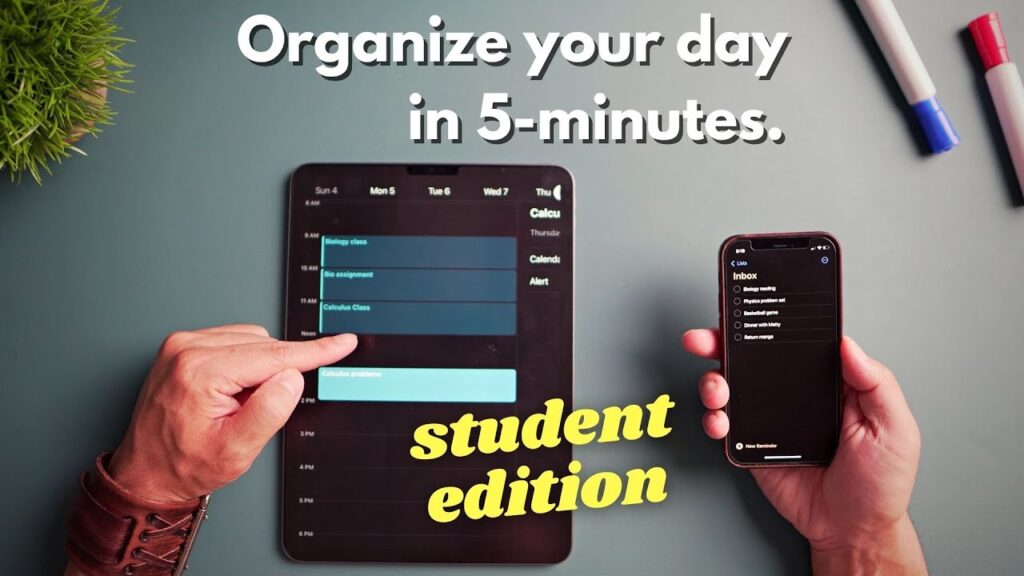Balancing classes, assignments, extracurriculars, and a social life can feel overwhelming for any student. But with effective time management, you can take control of your schedule, reduce stress, and achieve your academic goals. In this article, we’ll explore proven strategies to help you master the art of productivity, prioritize tasks, and make the most of your time. Whether you’re preparing for exams or juggling multiple commitments, these tips will set you up for success.
Why Time Management is Crucial for Students
Time management is more than just a skill—it’s a game-changer for students. Here’s why it matters:
- Improved Academic Performance: Staying organized helps you meet deadlines and perform better on exams.
- Reduced Stress: Managing your time effectively minimizes last-minute cramming and anxiety.
- Work-Life Balance: Prioritizing tasks ensures you have time for both academics and personal life.
- Long-Term Success: Developing time management skills now sets you up for success in college, work, and beyond.
5 Time Management Strategies for Students
Ready to take control of your schedule? Here are 5 proven strategies to help you master time management:
1. Use a Planner or Digital Calendar
- What It Does: Keeps track of deadlines, classes, and extracurricular activities in one place.
- How to Use It: Write down all your tasks, assignments, and events. Set reminders for important deadlines.
- Why It Works: Visualizing your schedule helps you stay organized and avoid last-minute surprises.
2. Prioritize with the Eisenhower Matrix
- What It Is: A tool that helps you categorize tasks based on urgency and importance.
- How to Use It: Divide tasks into four quadrants:
- Urgent & Important: Do these tasks first.
- Important but Not Urgent: Schedule these tasks for later.
- Urgent but Not Important: Delegate if possible.
- Not Urgent & Not Important: Eliminate or minimize these tasks.
- Why It Works: Helps you focus on what truly matters and avoid wasting time on low-priority tasks.
3. Break Tasks into Smaller Steps
- What It Is: Dividing large projects or assignments into manageable chunks.
- How to Use It: For example, break a research paper into steps like brainstorming, outlining, drafting, and editing.
- Why It Works: Reduces overwhelm and makes it easier to get started.
4. Use the Pomodoro Technique
- What It Is: A time management method that breaks work into focused intervals (usually 25 minutes) followed by short breaks.
- How to Use It: Set a timer for 25 minutes, work without distractions, then take a 5-minute break. After 4 cycles, take a longer break.
- Why It Works: Keeps your brain fresh and prevents burnout by balancing focus with rest.
5. Set SMART Goals
- What It Is: Goals that are Specific, Measurable, Achievable, Relevant, and Time-bound.
- How to Use It: For example, instead of saying, “I’ll study for the exam,” set a goal like, “I’ll review chapters 1-3 for 2 hours on Tuesday.”
- Why It Works: Provides clarity and motivation, making it easier to track progress and stay on track.

Real-Life Examples of Time Management Success
- Exam Prep: Students who use the Pomodoro Technique often report better focus and retention during study sessions.
- Project Management: Breaking large assignments into smaller steps helps students complete them on time without stress.
- Work-Life Balance: Prioritizing tasks with the Eisenhower Matrix ensures students have time for both academics and personal activities.
The Science Behind Time Management
These strategies are supported by research in cognitive psychology and productivity science:
- Chunking: Breaking tasks into smaller steps reduces cognitive load and improves focus.
- Attention Span: The Pomodoro Technique aligns with the brain’s natural ability to focus for about 25-30 minutes.
- Goal Setting: SMART goals provide clarity and motivation, making it easier to achieve objectives.
Final Thoughts: Start Managing Your Time Effectively Today
Effective time management is the key to academic success and personal well-being. By implementing these strategies, you can take control of your schedule, reduce stress, and achieve your goals with confidence.
At Onescholar.org, we provide actionable career growth and skill development tips to help you succeed in today’s competitive world.
VIDEO CREDIT:






